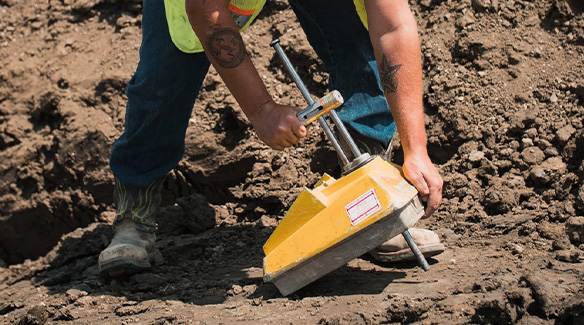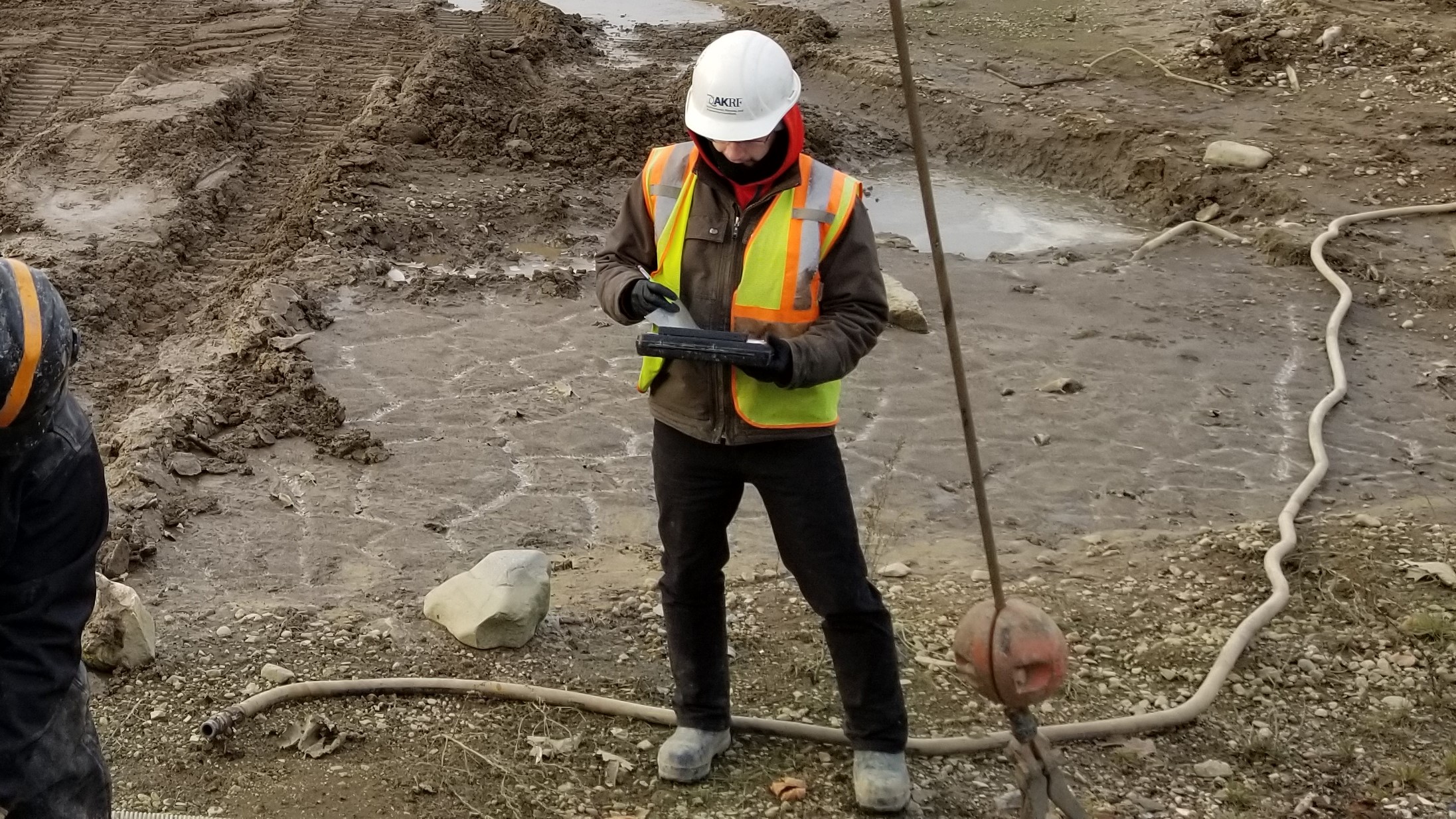How a Proficient Tailings Engineer Can Enhance Your Mining Operations
How a Proficient Tailings Engineer Can Enhance Your Mining Operations
Blog Article
The Interdisciplinary Approaches in the Geotechnical Industry: Bridging the Gap In Between Design, Geology, and Environmental Science for Ideal Task End Results
The combination of design, geology, and ecological scientific research within the geotechnical market is not just beneficial; it is critical for accomplishing ideal task outcomes. What strategies might emerge to promote this essential partnership and improve the effectiveness of geotechnical practices?
Importance of Interdisciplinary Cooperation
The relevance of interdisciplinary collaboration in the geotechnical industry can not be overstated. Effective geotechnical projects require the integration of varied knowledge from different fields, consisting of design, geology, and environmental science. This cooperation makes certain that all elements of a task are thought about, resulting in thorough options that deal with intricate difficulties.
When working in seclusion,Interdisciplinary partnership promotes advancement by enabling specialists to share insights and approaches that might not be obvious. By leveraging the toughness of multiple self-controls, groups can determine prospective dangers, optimize design procedures, and boost the sustainability of geotechnical projects. Such partnership promotes a holistic understanding of site-specific conditions, which is crucial for precise assessment and decision-making.
The complexity of geotechnical jobs requires a coordinated method to analytic. When designers, rock hounds, and environmental researchers collaborate, they can create a natural strategy that aligns technical demands with environmental factors to consider and regulatory conformity. This harmony not only boosts project outcomes yet likewise adds to the lasting strength of infrastructure. Inevitably, interdisciplinary collaboration is necessary for progressing finest techniques and achieving excellence in the geotechnical market.
Secret Duties of Each Discipline
Cooperation among various disciplines is not simply beneficial; it is vital for the effective implementation of geotechnical tasks. Each technique-- design, geology, and environmental science-- plays a distinctive yet interconnected duty that adds to forecast efficacy and sustainability.
Geotechnical engineers are mainly in charge of developing foundations and making sure architectural stability. They examine soil and rock properties to analyze load-bearing capacities, supplying important data for secure building and construction techniques. Their proficiency makes it possible for the formulation of cutting-edge solutions to intricate difficulties.

Ecological researchers evaluate the potential influences of construction on ecosystems and water resources. They conduct ecological evaluations and create mitigation strategies to decrease adverse results. By integrating eco-friendly factors to consider, they make certain compliance with laws and promote sustainability throughout the project lifecycle.
Instance Research Studies of Effective Integration
Effective combination of geotechnical techniques can be exemplified through different study that highlight the effectiveness of team effort in dealing with intricate engineering obstacles. One noteworthy instance is the construction of the Hong Kong-- Zhuhai-- Macau Bridge, where a collective strategy entailing geotechnical engineering, geology, and ecological scientific research was important. Rock hounds and engineers functioned in unison to analyze the seabed pop over to this site conditions and optimize the structure design, making certain stability and minimizing environmental effect.
Another impactful case is the renovation of slope stability in the San Francisco Bay Area, where an interdisciplinary team incorporated geotechnical analysis with ecological assessments. By integrating hydrological studies and geological studies, the group efficiently recognized possible landslide risks and executed efficient reduction steps, boosting safety and sustainability.
Furthermore, the redevelopment of Brownfield sites commonly needs a multidisciplinary strategy. In one case in Chicago, cooperation among geotechnical designers, environmental scientists, and city organizers led to the successful remediation of polluted dirt, permitting the safe transformation of the site right into an area park. These situation research studies show that interdisciplinary cooperation not just addresses technical challenges but additionally cultivates innovative solutions that benefit both projects and areas.
Obstacles in Multidisciplinary Projects

In addition, coordinating schedules and operations amongst numerous teams can be problematic, especially when each discipline has special project landmarks and deliverables. This misalignment can lead to delays and boosted costs. The challenge of source allotment also impends large; making certain that specialized expertise is offered at important junctures calls for careful planning and insight.
Lastly, regulatory conformity poses an additional significant obstacle. Each technique may encounter different regulatory structures, and straightening these needs to meet job objectives can look at this website be time-consuming and intricate. Addressing these challenges necessitates solid leadership and effective interaction approaches to cultivate collaboration and ensure that multidisciplinary groups work cohesively in the direction of shared goals.
Future Trends in Geotechnical Practices
As the geotechnical market develops, arising fads are reshaping methods to attend to the challenges faced in multidisciplinary tasks - consulting engineer. One significant trend is the boosted combination of advanced modern technologies, such as expert system and artificial intelligence, into geotechnical evaluation and style. These technologies boost anticipating modeling and threat assessment, allowing engineers to make more educated decisions throughout the project lifecycle

In addition, the fostering of digital doubles and real-time surveillance systems is coming to be extra widespread. These devices promote recurring analysis of dirt problems and architectural efficiency, permitting for prompt treatments when issues emerge.
Conclusion
In verdict, the assimilation of engineering, geology, and ecological scientific research is essential for achieving optimum results in the geotechnical industry. Successful situation studies show the advantages of this strategy, while acknowledging the obstacles dealt with in multidisciplinary tasks.
The integration of engineering, geology, and ecological scientific research within the geotechnical market is not merely advantageous; it is crucial for achieving optimum job outcomes. Reliable geotechnical tasks require the assimilation of varied know-how from numerous fields, including engineering, geology, and ecological science.Browsing the intricacies of multidisciplinary tasks in the geotechnical industry provides a number of considerable difficulties.As the geotechnical sector advances, arising trends are reshaping methods to attend to the challenges dealt with in multidisciplinary tasks. Geotechnical engineers are progressively teaming up with ecological researchers to ensure that tasks align with sustainability goals and comply with regulative needs.
Report this page